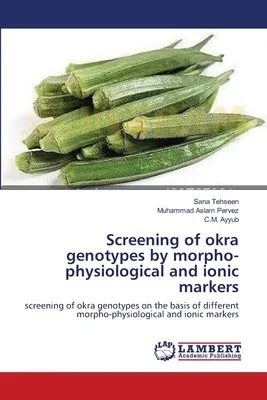Sana Tehseen
(Author)Screening of okra genotypes by morpho-physiological and ionic markersPaperback, 5 May 2012

Qty
1
Turbo
Ships in 2 - 3 days
In Stock
Free Delivery
Cash on Delivery
15 Days
Free Returns
Secure Checkout
Print Length
100 pages
Language
English
Publisher
LAP Lambert Academic Publishing
Date Published
5 May 2012
ISBN-10
3659105589
ISBN-13
9783659105586
Description
Product Details
Book Format:
Paperback
Country of Origin:
US
Date Published:
5 May 2012
Dimensions:
22.86 x
15.24 x
0.61 cm
ISBN-10:
3659105589
ISBN-13:
9783659105586
Language:
English
Location:
Saarbrucken
Pages:
100
Publisher:
Weight:
158.76 gm

